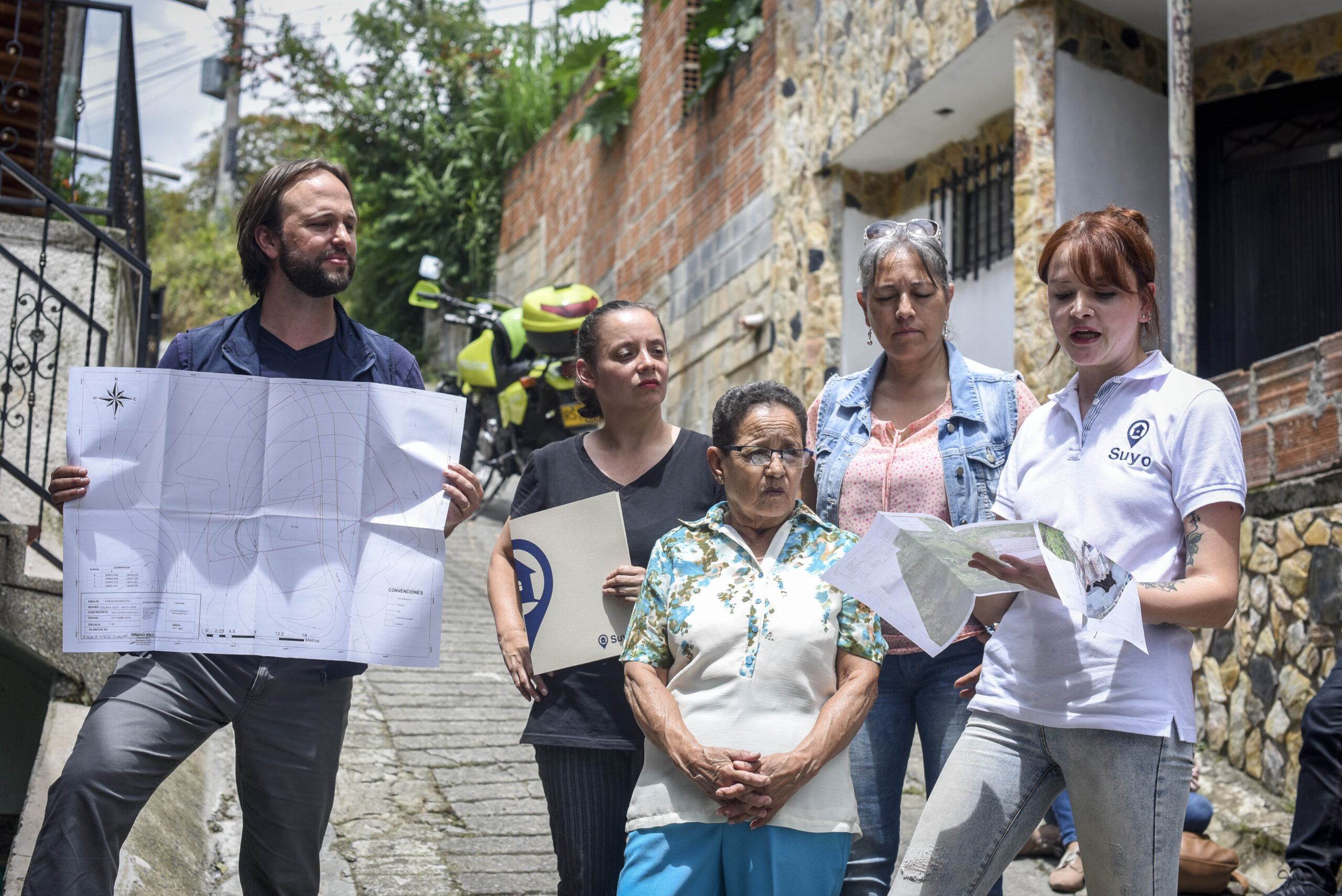The All Fellows Conference is an annual gathering of Echoing Green’s global community. As part of the conference, Echoing Green Fellows participate in partner- and peer-led leadership workshops, visit local social enterprises, and create space to share, learn, and reflect. Industry professionals, corporate champions, impact investors, and thought leaders also join us for a day of social innovation workshops and networking.
This year, the All Fellows Conference took place in Medellín, Colombia, and served as Echoing Green’s first gathering in Latin America. With a complex and evolving history of mobilization and transformation, the city of Medellín offered an unprecedented opportunity to engage local leaders on key social issues.
“Social entrepreneurs are problem solvers by nature, and are willing to transform systems, bringing sustainable solutions to age-old challenges,” said Cheryl L. Dorsey ‘92, president of Echoing Green. “There is no better place in the world to see that modeled than in Medellín, Colombia, a city that has become a hub of innovation and entrepreneurship, built with the participation and engagement of stakeholders across the public and private sectors.”
Community-Led Solutions in Action
At the heart of this conference is the opportunity for social entrepreneurs and leaders to learn from each other while immersed within a social entrepreneurial hub. As the world questions and grapples with how to best dismantle systemic barriers and social inequities, our community gained tremendous insight into Colombia’s authentic, grassroots social change.
Site visits to 12 social enterprises and 10 Airbnb-sponsored experiences allowed Fellows and guests to appreciate community-led solutions in action. We heard directly from the people and institutions in Colombia and Medellín that are applying a solutions mindset to address new and old challenges. Along with absorbing the historical lessons and perspectives shared by local leaders, guests learned about and saw how the city of Medellín itself was transformed and built in a way to bring about social equity, mobility, and inclusion.

Mateo Alexander ’15, founder of Suyo, leads a site visit with Suyo constituents in Medellín.
Throughout the week, we hosted 25 workshops and sessions ranging in topic from “Investing in People to Build Resilient Communities” to “Sustainability & Development in the Age of Climate Change.” Through an exchange of ideas between our community and ecosystem of leaders to discuss timely issues, three takeaways stand out as critical conversations to continue:
1. Movement Building Requires Authenticity and a People-First Mindset
Several sessions raised the need to elevate and support leaders with lived experience and connection to the community in which they are serving. Morgan Dixon ’13 and Vanessa Garrison ’13, co-founders of GirlTrek, hosted a session on grassroots organizing where they stressed that being adjacent to the people you serve is not sufficient. In order to have real impact, those closest to or within the community must propel movement building. Effective movements stem from leaders who define their own language and set their own narratives, with support from institutions to do so. To set these leaders on a path to success, organizations need to rethink how they engage with local communities and constituents to ensure that direct stakeholders are always at the table.
2. Power Must Be Used to Benefit – Not Harm – Communities
It is clear that gatekeepers and decision makers–whether political, economic, or cultural–must use their influence to disrupt the status quo, despite the perceived risks of doing so. For the social entrepreneurship field, in particular, this means foundations, philanthropists, and investors must be more transparent with their processes to elevate those traditionally locked out of opportunity as a result of biases related to race, ethnicity, age, gender, and more.
3. Collaboration and Shared Perspectives Will Build Stronger Networks
Across sectors, geographies, socioeconomic groups, ethnic and cultural groups, and more, various stakeholders need space to intentionally share perspectives and solutions for change. During a nonprofit fundraising session, Fellows suggested that funders should seek opportunities to learn about on-the-ground realities rather than operating from assumptions. This will help break down harmful narratives and allow communities to set their own narrative. Stakeholders must embrace proactive research and honest intent to listen and learn–particularly when power dynamics are heavily skewed.
The Conversation Doesn’t End Here
Our hope is for these conversations to extend beyond Medellín and beyond this week spent learning, sharing, and reflecting. To change systems for the better, we must continually look to and support those who have lived the problems that need to be solved. As a community we need to intentionally identify, empower, and connect those who can change the perception of what is possible for vulnerable communities, governments, and others.
We are grateful to our exceptional host committee who provided expertise and meaningful connections both before and during the conference. These local leaders included Samuel Azout, president of Futbol con Corazon; Virgilio Barco, director of Acumen Latin America; Felipe Medina, chairman of Transforming Philanthropy Initiative; Paula Moreno, president of Manos Visibles; Santiago Uribe, Medellín’s chief resilience officer; and Paola Urrea, president of ACG and NextGen at Leonisa.
The five Echoing Green Fellows on our host committee also played a crucial role in shaping the conference. Thank you to Mateo Alexander ’15, founder of Suyo; Avnish Gungadurdoss ’13, founder of Instiglio; Juliana Gutiérrez ’17 and Juan Manuel Restrepo ’17, co-founders of Low Carbon City; and Harlyn Pacheco ’13, principal consultant at Revesus.
For more photos from the conference – including site visits, the Echoing Green Fellow marketplace, and conversations in action – check out our Facebook album and revisit conference highlights on social.